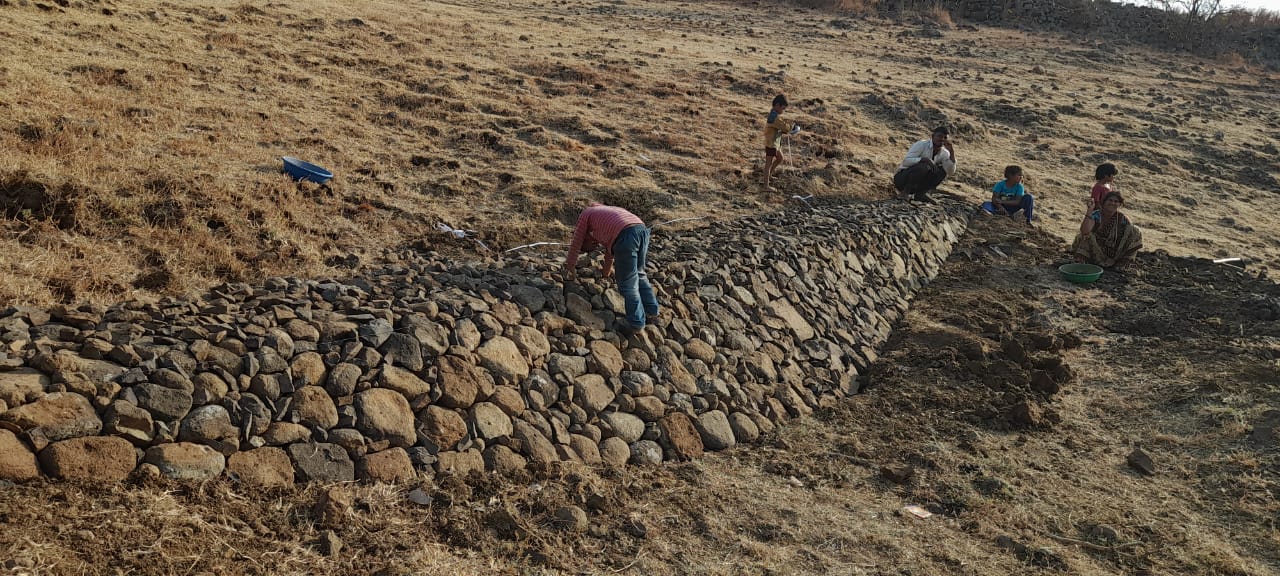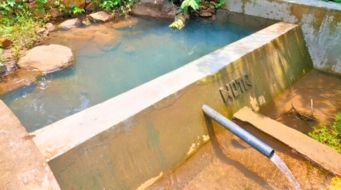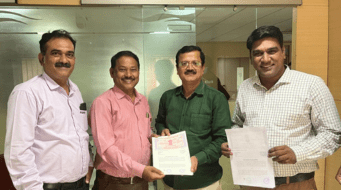Nestled between the coordinates of 17.1634 to 17.1660 degrees latitude and 74.373 to 74.37060 degrees longitude, lies a cluster of 5 villages – Ghoti Bk, Ghoti Kh, Dhondgewadi, Posewadi and Renavi – located in the Khanapur Taluka of the Sangli district in Maharashtra. These villages, which are situated 64 km away from the district headquarters, reside at an altitude ranging from 690 meters to 856 meters above mean sea level.
The area, with an average annual rainfall of 500 mm to 550 mm, is fed by the catchments area which empties into the Krishna River. With a total geographical area of 4,354.49 hectares, it is home to 6,937 people and 1,627 households. Despite its serene surroundings, the residents of these villages face challenges when it comes to securing a stable livelihood and improving their quality of life.
The Atlas Copco Charitable Foundation has partnered with WOTR to uplift the standard of living and create more prosperous livelihood opportunities for these village communities, leading them towards self-sufficiency and stability.

Integrated Watershed Development Project: the objective
The objective of the project title ‘Integrated Watershed Development Project’ is two-fold:
- To stabilize and enhance the local ecosystem, agricultural and livelihood base of the project villages through:
- Implementing soil conservation, water conservation and rainwater harvesting measures
- Improving irrigation potential and coverage, and ensuring efficient water distribution and application
- Promoting climate-resilient sustainable agricultural practices and diversification
- Supporting income-generating activities, particularly for poor and vulnerable groups, especially women
- To mainstream women and marginal groups into the institutional life of the village, improve the quality of life and strengthen the capacities of village institutions to effectively and accountably manage projects and the ecosystem through:
- Organizing women into Self-Help Groups (SHGs) centred on savings and credit operations.
- Ensuring adequate representation of women on village bodies and empowering them to effectively represent and secure their personal, social, and developmental interests.
- Organizing representative and inclusive Village Development Committees (VDCs), building their capacities to implement and maintain the project, and inserting and networking them into the local developmental framework.
- Sensitizing the community towards Biodiversity Conservation and Eco-system-based adaptation.

Planned Project Measures under the Integrated Watershed Development Project
A comprehensive plan has been created to address the pressing issues faced by the 5 villages in Khanapur Taluka. This plan comprises of the following key components:
- Empowering Women and Building Capacities: A series of training and capacity-building programs will be provided to the women of the villages to enhance their skills and increase their participation in the development process.
- Soil and Water Conservation: Measures will be taken to control soil erosion and degradation through soil and water conservation techniques.
- Water Harvesting and Erosion Control: Structures will be established to harvest rainwater, improving the availability of water for irrigation and domestic purposes. Erosion control measures will be implemented to mitigate the impact of natural disasters and protect the soil.
- Integrated Water Resource Management and Sustainable Agriculture: The water resources of the area will be managed in an integrated manner, promoting sustainable and adaptive agricultural practices, which are resilient to changing climatic conditions.
- Livelihood Development: A range of income-generating activities will be promoted, particularly for vulnerable groups and women, to improve their economic wellbeing.
- Documentation: All activities and processes will be well documented to ensure transparency, accountability, and effective implementation of the project.
The project is set to run for a period of three years, starting from January 2023 and ending in December 2025.





